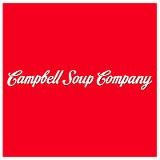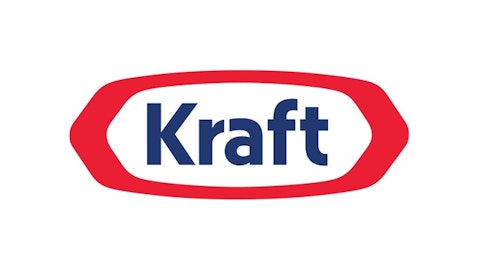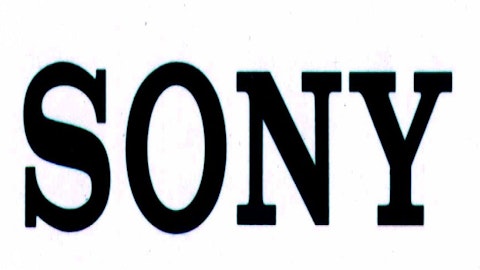Berkshire Hathaway’s recent $28 billion H.J Heinz acquisition threw the spotlight on a few food companies, one of them being Campbell Soup Company (NYSE:CPB). The day the acquisition was announced, its shares rose 6% and are nowtrading at the higher end of the 52-week range, near the high of $42.

- Campbell Soup Company (NYSE:CPB), with its iconic red-and-white packaging and popular soups such as Tomato and Cream of Chicken, was a well-known household brand until it began to lose its market share in the last few years. It market share dipped to 46% vs. 51% in 2007, one of the main reason being its ill-advised move into low-sodium formulations.
- When Denise Morrison took over in 2010 as CEO, she made the right decision to change the focus towards healthy products, fresh food and easy-to-prepare items. She focused on three main strategies : 1) Stabilize and then profitably grow North America soup and simple meals; 2) Expand the company’s international presence; and 3) Continue to drive growth in healthy beverages and baked snacks.
- At the recent annual Consumer Analyst Group of New York (CAGNY), the Company announced that it has made significant progress and has been able to stabilize its Soup and Simple Meals business. This was corroborated by its strong 2H13 results as the segment rebounded with sales increasing 2% and EBIT increasing 7%. This was mainly due to increased focus on re-engaging the consumer and innovation and the Company has mentioned that it will continue to focus on innovation introducing more than 50 new products by Aug 2013, up from only 3 in 2010 and 2011.
- With an intention to increase its international expansion, on 14th Feb it announced an arrangement with Grupo Jumex and Conservas La Costeña that will help expand the company’s access to manufacturing and distribution capabilities in Mexico. As a result of these agreements, Campbell will close its plant in Villagrán, Mexico, and recorded a restructuring charge of $6 million in 2Q13.
- Further, in line with its strategy the company also acquired Bolthouse Farms in July 2012, the manufacturer of healthy food products. The acquisition has given it access to $12 billion packaged fresh foods market as well as complements its existing V8 business beverage. For 2H13, Bolthouse contributed $195 million (8%) to total sales and $15 million (2%) to operating income. Company guided that it will contribute ~$750 million to sales and add $0.05 to $0.07 to adjusted EPS in FY13.
Financial performance:
- On Feb. 15, Campbell announced its 2Q13 results, sales were up 10% due to 1% organic growth and 9% from its Bolthouse acquisition.
- It reaffirmed its FY13 guidance: Sales growth of 10-12% with adjusted EBIT growth of 4-6% and adjusted EPS growth of 3-5% ($2.51 and $2.57).
- The most important factor for Campbell is its shareholder friendly policy. It has consistently maintained a dividend payout ratio of 46% in the last 4-years (in 2008 it had a dividend payout ratio of 28% due to economic recession). Further, it also an excellent share repurchase program in place. Despite these positives, the Company’s share price remains range-bound between $30-$40, ever since the recession and hence I am of the opinion, that it is only a matter of time, before the shares start moving upwards.






